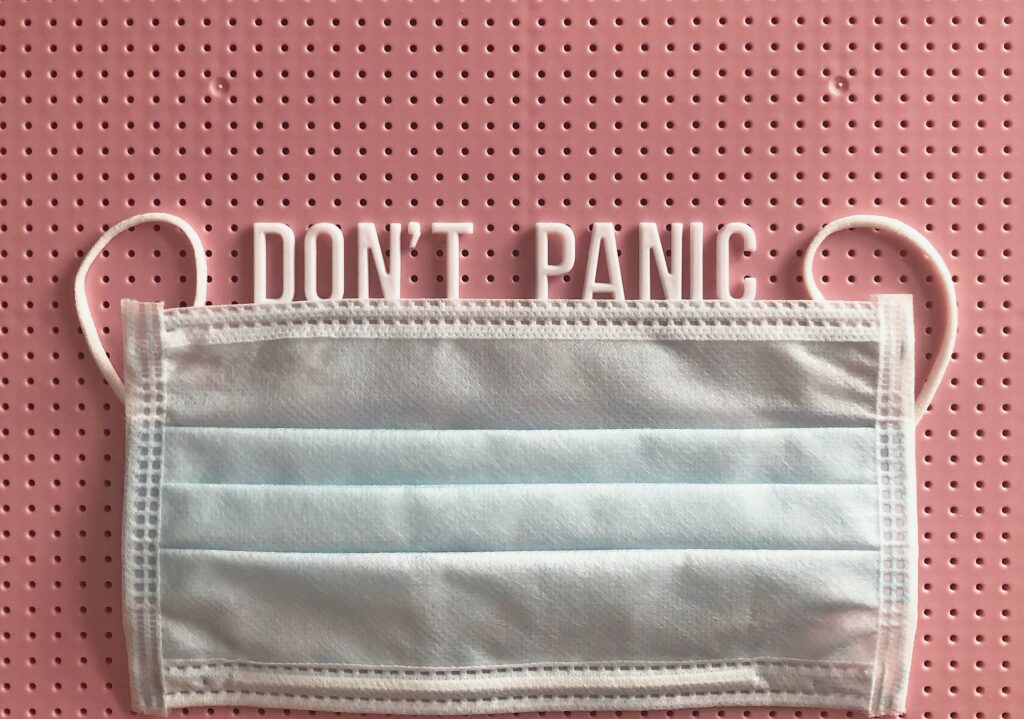Are you suffering from Covid sex guilt?
Dating and hooking up in a pandemic is…complicated. So we asked therapist Ashley Plotnik to weigh in on how to handle some of the feelings and fears around pandemic intimacy.
Lockdown has been an incredibly lonely time for single people and those separated from loved ones. Many of us have been involuntarily celibate. Others have been trying to connect with others as safely as possible, and may have even tried socially-distanced dating. For those seeking to date during this time, pursuing a physical connection with someone while navigating or flouting COVID safety can fill a person with COVID shame. Yes, it’s a thing. Here’s how to cope.

Q: Some couples are in open relationships where they have an understanding to see others outside the relationship or bring someone into the relationship. How to deal with emotions around exposure to the virus?
A: As with most relationships, and particularly open relationships, honest communication is key. It is important for gay couples to establish some ground rules for what is okay outside of the relationship during COVID. Just as we hope that couples establish safe boundaries for navigating STIs within the context of open relationships, so too COVID risk must be navigated and mitigated. These guidelines could include COVID testing before hooking up, being sure that new partners quarantine before and/or after being together, and making sure to wear masks and practice social distancing at all other times.
Q: Case study: A couple started dating just days before the pandemic. They did not consummate their new attraction. They have stayed virtually connected during this time but there is pressure and anxiety months later about hooking up when they see each other.

A: Thanks for raising this important question. For many people, sexual intimacy might look and feel different after a long period of separation, coupled with anxiety around COVID. I would remember that our sexuality is defined in myriad ways, not just by our hook up behavior. This couple is clearly connected on a sensual and energetic level, and especially in long-term relationships, those are important foundations even when the initial spark has evolved. I would advise the couple to be patient and to try to loosen their understanding of what hooking up looks like — even cuddling, kissing, and being with each other after a year apart are ways in which our sexuality can begin to be expressed again, and that may or may not lead to specific hooking up behavior. Either way is okay! And if they are really concerned and want help navigating, reaching out to a sex positive therapist is always advised!
Q: What are the rules or options for a mixed household e.g. LGBTQ parents with children, or roommates who may want to bring their dates home?
A: This year has required us to be honest and to maintain open communication in ways that we might otherwise have avoided. This does not mean speaking about specific sexual behavior with those in our household, but it does mean being honest about who we choose to allow inside of our homes, and how we protect ourselves and our loved ones outside of the home (by masking, social distancing, etc). If you want to bring your date home, be sure that you both are practicing social distancing outside of the home, and ask your date and family to wear masks around each other when inside and not safely distanced. Eventually, if the person becomes a part of your safer inner circle, you can remove masks inside, but only when there is a high level of trust among all parties involved. If your date chooses to attend a party or another high COVID risk situation, make sure to distance yourself and your family for two weeks afterward and to stay connected virtually during that time.

Q: Advice for navigating the emotional stress of fear of intimacy, guilt about physical risk, and how to avoid blaming or shaming if someone tests positive?
A: Unfortunately, the gay community is all too familiar with the emotional stress of navigating disease, grief, and supporting one another during times of stress and loss from the AIDS crisis. While COVID is different than AIDS, we do need to learn the lesson of reducing stigma around those who test positive, particularly when safety measures are in place. Without total isolation and celibacy, we are all engaging in some form of risky behavior; the key is mitigating that risk. For our emotional well being, it is essential that we find ways to feel intimate and connected during this time, and we can do that safely with friendship, flirting, sexting, and masturbation, among other things. When we open up our risk to the next level of being together in person, we can use open communication and trust to mitigate risk. And ultimately we have to accept that we are not in total control of our lives or this virus, and we must be there for each other if the unexpected positive test occurs.

About the Expert
Ashley Plotnick, LSW,Psychotherapist (she/her/hers)
Ashley is a relationship-centered therapist who also draws upon family systems theory in her work with adults and teens. Ashley believes that the therapeutic relationship must foster a sense of warmth, authenticity, and acceptance, enabling clients to bring their full selves to the work, creating deeper awareness and a more connected, lived experience. Ashley’s varied life experience has taught her that integration is essential on our journey toward wholeness. In this way, she creates safe space for people to bring the many aspects of their own selves—social, emotional, spiritual, and sexual—to the therapy process. Ashley’s extensive training in mindfulness practice enables her to hold each person’s story with compassion and to meet them with presence.
More therapists can be found at Wellington Counseling Group.






